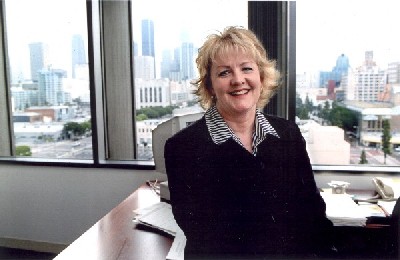

|
50 sign up for State Bar's new diversion program More than 50 California lawyers with substance abuse problems have signed on to the State Bar's new attorney diversion program, committing to meetings several times a week and random drug and alcohol testing. With only limited outreach since it began in January, and although its rules and criteria have not been formally adopted, the new Lawyer Assistance Program has enrolled the participants in support groups in seven locations throughout the state. "It's amazing for having done only targeted outreach to the judicial branch," said program director Janis Thibault, who has spent the last six months creating the program from scratch. Thibault said some participants have been referred to the program through the discipline system, some by The Other Bar, a State Bar-affiliated support group for alcoholics, and still others have referred themselves to the program. Created by SB 479, authored by Sen. John Burton, D-San Francisco, the LAP is designed to help alcoholic or drug-addicted lawyers get sober before they land in the bar's discipline system. It is funded with $10 from each active bar member's dues - about $1.4 million annually. The legislation took effect in January, Thibault was hired away from the California Medical Board, where she ran its program for addicted physicians, in February, and the first lawyers signed up in March. Thibault, who works in Los Angeles, has hired a deputy acting director and two case managers, with plans to add five more and a small support staff in both San Francisco and Sacramento. With full staffing expected by the end of the summer, Starr Babcock, the bar executive overseeing the program, indicated that a comprehensive outreach effort to the members and public would get underway, including LAP MCLE courses at the Annual Meeting.
The intent of the program is to offer services to lawyers statewide. Under criteria expected to be formally adopted later this summer, any active or inactive attorney or former attorney is eligible for the program if he or she has a substance abuse or mental health problem. Enrollment must be voluntary. Those currently enrolled attend a weekly meeting with a group facilitator, a meeting with a community-based group such as Alcoholics Anonymous and a meeting of The Other Bar. Participants pay their own costs, including group facilitator and lab test fees. Under the legislation, no attorney is denied enrollment because of inability to pay, so the bar is setting up a financial assistance program as well. Although the LAP has been started from scratch, Thibault said it will replicate the successful components of the physician diversion program, which has a success rate over the past 20 years of between 69 and 74 percent. Success is defined as three years of continuous sobriety, five years of participation in the program and lifestyle changes which enhance sobriety. The identity of attorneys who participate is confidential and they can continue to practice while in the program. In hopes of winning judicial support for their efforts, Thibault and Babcock have made presentations and provided information to the chief judges of four federal district courts and to the Judicial Council's Presiding Judges and Court Executives Committee. They asked the judges to call the program and refer any attorney who appears to be impaired by drug or alcohol abuse. "They can be involved or not," Thibault said, adding that if a judge is willing to let the program intervene using his or her name "that means a lot. It's very powerful." Committee vice chair Suzanne Kingsbury, who serves as presiding judge of the El Dorado County Superior Court, said the program "sounds like an exceptional opportunity to provide needed services to attorneys who are dealing with alcohol and substance abuse problems without facing the arena of discipline through the State Bar." San Diego County Superior Court Presiding Judge Richard Strauss said he's receptive to the program but is not aware that substance abuse is a big problem in his courts. "I don't see anything in (the program) that isn't a good idea," he said, "but whether it's practical and workable is hard to know. The proof is going to be in whether it's accepted." That, he added, is also an unknown and may depend on the county's 128 judges' individual personalities. "The judge population is no different from the journalist population or the lawyer population or the general population," Strauss said. "Some personalities would say, 'It's my obligation to report someone' and some might be very uncomfortable, feeling they're not qualified to make a judgment." Individuals interested in the program may call its confidential phone number: 866/436-6644 or e-mail LAP@calbar.ca.gov. |
||||||||
|
||||||||
